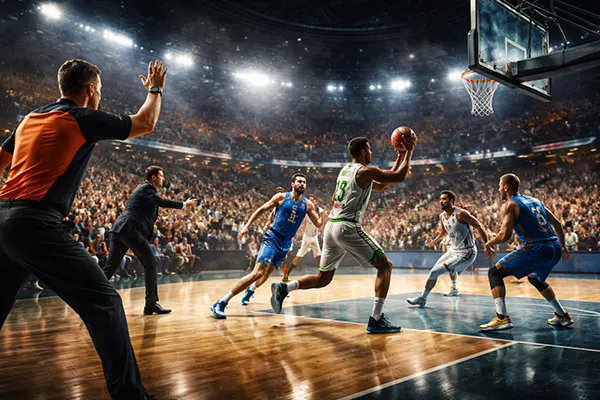Myths and Reality: Do Professional Athletes Regularly Bet?

Professional athletes are often surrounded by myths and misconceptions, one of which is the belief that they frequently engage in betting activities. This perception stems from high-profile cases and media coverage of scandals, but how accurate is this notion? In this article, we will explore the reality behind this common assumption, examining whether professional athletes truly indulge in regular betting or whether this is merely a widely spread myth.
Why the Myth Persists
The myth that professional athletes are regular bettors persists due to a combination of factors, including media sensationalism and public perception. High-profile betting scandals involving athletes make headlines, leading people to assume that betting is a common practice among sports professionals. In reality, these cases are often isolated incidents, but they receive extensive coverage, leaving a lasting impression.
Additionally, the lifestyle associated with professional athletes, including wealth and fame, fuels the notion that they might seek thrill through betting. This perception overlooks the strict regulations and policies that most sports organizations have in place to prevent betting among athletes. Violations can lead to severe penalties, including suspensions and bans.
Another reason for the persistence of this myth is the lack of public understanding regarding the actual betting habits of athletes. Many fans may project their own betting experiences onto athletes, assuming that those involved in sports would naturally participate in wagering. However, the reality is far more regulated and controlled.
Reality Check: Policies and Consequences
Most professional sports leagues, including football, basketball, and baseball, enforce stringent rules against betting among players. For example, the National Football League (NFL) and the English Premier League (EPL) have clear policies prohibiting athletes from betting on games, especially those involving their own teams. The rationale behind these policies is to maintain the integrity of the sport.
In cases where athletes are found to be betting, the consequences are significant. Recent incidents have shown that even casual bets can result in lengthy suspensions or hefty fines. The aim is to prevent any compromise of fair play and to ensure that the results of sporting events remain credible.
It is also important to note that professional athletes are regularly educated about the risks and legal implications of betting. Through mandatory workshops and awareness programs, they are made aware of the potential damage that betting can do to their careers and reputations.
The Role of Betting Companies in Sports
One factor that complicates the perception of athletes betting is the sponsorship relationships between sports leagues and betting companies. Many major sports organizations have partnerships with betting firms, promoting responsible gambling as part of their brand image. This association sometimes leads to the false belief that athletes themselves participate in betting activities.
However, these sponsorships are targeted at the audience rather than the players. The purpose is to generate revenue and engage fans, rather than encouraging athletes to place bets. Betting companies often sponsor sports teams and events, but the athletes themselves are typically prohibited from engaging in any related activities.
Despite the prevalence of betting advertisements during sports broadcasts, athletes are strictly monitored to ensure compliance with anti-betting policies. The presence of betting logos does not imply endorsement or participation by the players themselves.
Notable Scandals and Misinterpretations
While it is true that some athletes have been caught betting, these cases are exceptions rather than the rule. One notable example involved a footballer who placed bets on matches he was not involved in, resulting in a fine and suspension. Such incidents often result from a lack of awareness about the specific rules rather than a blatant disregard for regulations.
These scandals receive disproportionate media coverage, leading to the erroneous belief that betting among athletes is widespread. In reality, the vast majority of professional athletes adhere strictly to the rules, understanding the risk to their careers and reputations.
Media narratives often exaggerate the frequency of such incidents, creating a skewed perception. It is crucial to distinguish between isolated cases and the everyday reality of professional sports life.

Why Athletes Avoid Betting
The primary reason athletes steer clear of betting is the potential impact on their careers. In addition to the professional risks, athletes face the prospect of damaging their public image. Integrity is paramount in professional sports, and any association with gambling can tarnish an athlete’s legacy.
Moreover, athletes often receive financial advice and guidance on maintaining their earnings responsibly. This education typically includes avoiding activities that could jeopardize their financial stability, including betting.
Athletes are also acutely aware that any involvement in betting, especially related to their sport, can result in lifetime bans. Therefore, the risks far outweigh any perceived benefits.
Concluding Thoughts: Separating Myth from Reality
In conclusion, while there have been instances of professional athletes being involved in betting, these cases are the exception rather than the norm. The combination of strict regulations, professional ethics, and the potential consequences deters most athletes from engaging in betting activities.
The myth of widespread athlete betting persists mainly due to media exaggeration and public misconceptions. It is essential to approach such narratives critically, acknowledging the reality of strict oversight and the professional standards upheld by most athletes.
Understanding the difference between media portrayals and actual practices is vital in dispelling myths about professional athletes and betting. By focusing on facts rather than assumptions, we can gain a clearer perspective on the issue.




